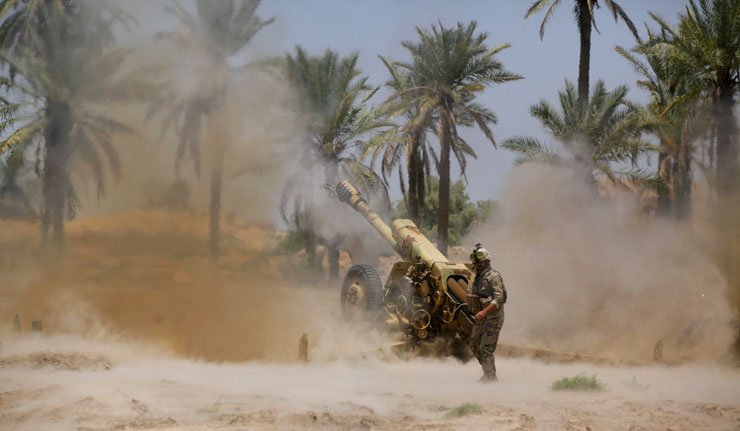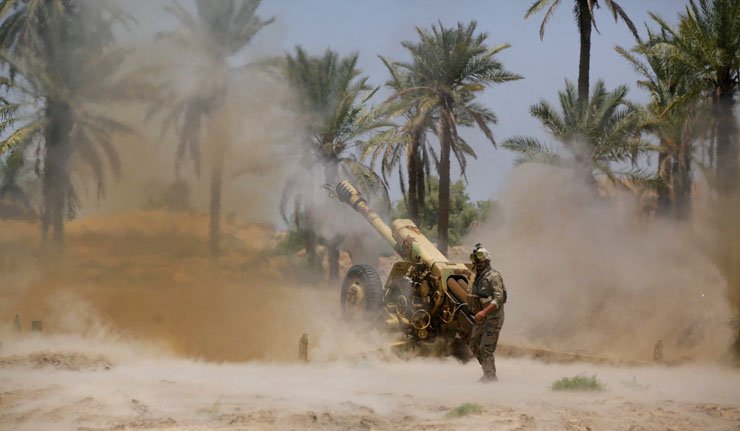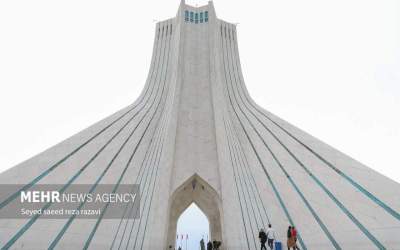 � Photo: REUTERS/Alaa Al-Marjani[/caption]
� Photo: REUTERS/Alaa Al-Marjani[/caption]A mounting onslaught spearheaded by the militant group the Islamic State of Iraq and the Levant, known as ISIL or ISIS, threatens to tear Iraq apart and destabilize the entire Middle East. Since the fall of Mosul, the main city in the northern Iraq, on June 10, militants have seized areas across the north and west of the country mostly populated by Sunnis.
According to reports, denied by authorities, the militants took control of the nation's largest oil refinery. With insurgency barely a dozen miles from the capital, people are reported to be fleeing Baghdad in scores. Prime Minister Nouri al-Maliki has so far failed to contain the bloody insurgency.
ISIS success can be attributed to several factors. Firstly, Iraqi army is very weak � it "does not have the capacity or the will to be able to fight on behalf of the nation", states Dr. Lina Khatib, Director of Carnegie Middle East Center. The military does not have the resources and is not organized enough to do so.
The person responsible for that is Iraqi prime minister who replaced top military officers with people close to his own camp in a bid to create "a private army of sorts", the expert explains in an exclusive interview with Radio VR. Thus, the country's military is Shia-dominated and in no way reflects Iraq's demographics.
Secondly, although Islamist rebels do not enjoy popular support in Iraq they are backed by Sunni tribes and forces loyal to Saddam Hussein in what the expert calls a strategic operation. "They resent Maliki's policies and his exclusion of Sunnis from power", Dr. Khatib points out. They hope that ISIS will help them "exact revenge on Maliki and get rid of his government." And that's exactly what the militants are exploiting - they are using resentment of Sunnis living in Iraq for their strategic purposes.
Maliki alienated Sunnis and Kurds, who "feel they do not belong in the centralized Iraqi state". It should be noted that a significant proportion of the Shia, who follow Ayatollah Ali al-Sistani, also feel they are underrepresented. They are currently resorting to forming their own militia to protect themselves. "Add to that resentful Sunnis and you have a recipe for civil war," the expert concludes.
What could be done at this stage? Solution, that could bring positive change and turn the tide of sectarian war, is twofold. Iraqi authorities have to begin a constructive political dialogue with Sunnis, Shiites and Kurds. That includes forming a new national unity government that is truly representative. Those who currently may support ISIS have to be engaged politically and economically, the expert believes.
Secondary option that can and probably should be explored is military action that "on its own will not be effective. Even if the US sends military support they will not be able to wipe out whole tribes that are affiliated with ISIS."
Dr. Lina Khatib stresses that the only way Iraq can weather the current storm is through cooperation with outside actors that include the United States, Saudi Arabia and Iran, because ISIS is a common enemy for all of them. That is complicated by the fact that to persuade Tehran to work with Washington is "not an easy feat for anyone".
By The Voice Of Russia
The Iran Project is not responsible for the content of quoted articles.











